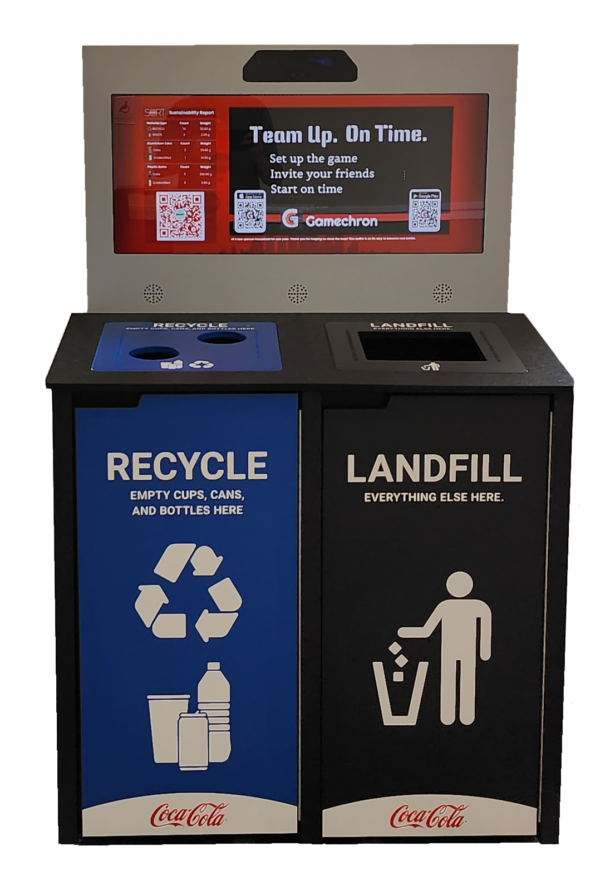In today’s world, we cannot imagine our everyday life without having the latest equipment. A couple of decades ago, it would sound strange, but it is a fact that many people heavily depend on their mobile phones, laptop, or tablets mainly for business reasons. We can see that the business world is no different than everyday life. Companies need to stay in touch with the latest technology primarily for keeping up with the competition. Following these trends can sometimes be crucial for staying ahead of the competition. We’ve presented you with the need for technology in today’s society, but the real question is what should be done with, so-called e-waste.
You would probably be surprised to hear that around 50 million tons of e-waste are manufactured every year. So, it seems inevitable for our environment to be contaminated with all of these. Also, we should be aware that e-waste is made of damaging materials like cadmium, chromium, etc. They can be particularly harmful if they enter the human body. At the same time, they present a danger to animals and plants. Therefore, it is of the utmost priority for us to take some action to prevent it from happening. If you are looking for an e-waste recycling company near you, click here.
Moreover, every person needs to take action on his own. Therefore, we’ve decided to compile a list of helpful tips on how to dispose of and recycle e-waste. Let’s see what we’ve been able to find.
1. Sending Electronic Devices Back
In the last decade, many companies who are dealing with electronic devices have come up with a policy where they accept all of the old e-devices and gadgets back. Some of them even offer a certain discount to the buyer that provides them with old material. This is essential for the future because humanity will be able to preserve some resources by recycling old electronic devices. Also, some companies can provide you with a location where you can leave all of the older machines and receive a paper that proves your activity. That way, you will be awarded some discounts without a doubt.
2. Using Cloud Services for Data Storage
With the emergence of cloud services, we can see that the need for data storage like hard drives has slowly declined. This is an option that provides a plethora of benefits to its users. Firstly, you will not have to buy additional hard drives or USB sticks to store all of the data you want. Therefore, you will not spend an unnecessary amount of money on them. At the same time, you will not be required to carry the devices with you to access the data you need at a particular moment.
Last but not least, you will be able to access the data from anywhere in the world where you have a proper internet connection. Furthermore, cloud service will put an end to data storage as we know it. All of the data has a future with online storage.
3. Taking Them to the Recycling Centre
Finding a proper e-waste recycling center near your home will provide you with an excellent method to dispose of this waste without contaminating nature. Thankfully, with the awareness of this problem being particularly high in the last couple of years, this shouldn’t be too hard of a task. So, sending all of your hard drives, mobile phones, CDs, DVDs, USB sticks, etc. to one of these will be both beneficial for nature, and you will be able to clear the mess from your room or house. Some companies have become so good at this that they offer audit services for large and medium-sized companies and help them save money they would spend on storing.
4. Avoiding Landfill
We can see that landfills are the most conventional approach to disposing of all kinds of junk. Even though this is a pretty standard way, we can say that it is not the best one, especially for e-waste. There are many reasons for it, but the main one is that e-waste usually has chemicals like lead or mercury that can have a massive negative effect on the environment, in this case, the soil. Therefore, we would highly recommend you consider some alternative ways of disposing of your e-waste. That way, you will preserve nature and yourself from being contaminated.
5. Renting Electronic Devices
For you to minimalize the number of devices laying around your home and ultimately in a landfill, you can always choose to rent e-devices and gadgets. This action is mostly the case with devices you don’t use very often. For example, you are a business owner, and you need a projector to hold a meeting. It doesn’t mean that you need to buy it and store it away until you need it again. It would be much more practical to rent a projector that you will use and then return it to the person who rented it to you. That way, you will be required to pay only for the time you have used it without wasting too much money. Renting electronic devices is also helpful if you are looking for reducing the occupied space in your apartment or store.
6. Donation
One of the commonest and surely the most generous, ways of disposing of e-waste is donating devices to people who require them. It could be a student, a company that needs a particular device, or NGO that specializes in storing these. However, you should double-check every device before you give it away because it could still contain some of your data that you even might need or that can be used for some illegal activities by others. Thankfully, there are many organizations in this field of work, so you will have no trouble finding one of them that can take e-waste right out of your hands.




